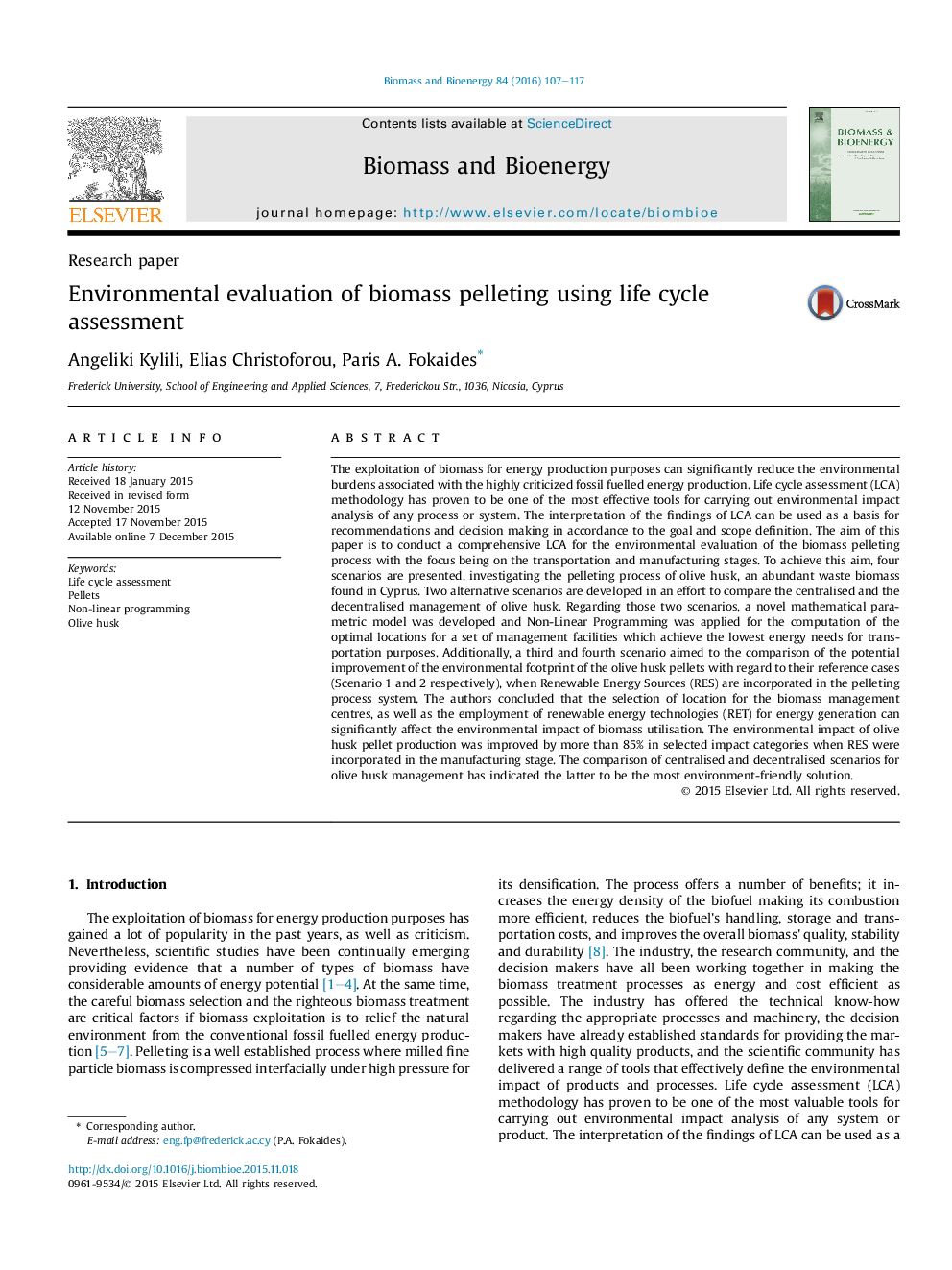| کد مقاله | کد نشریه | سال انتشار | مقاله انگلیسی | نسخه تمام متن |
|---|---|---|---|---|
| 676726 | 1459809 | 2016 | 11 صفحه PDF | دانلود رایگان |
• LCA was employed to assess the environmental impacts of the pelleting process using waste olive husk.
• The optimal locations for a set of management facilities, based on non-linear programming were derived.
• The decentralized pelleting centres scenarios were found to have the less harmful impact on the environment.
• Transportation and RES exploitation were found to have a crucial environmental impact on pelleting process chains.
The exploitation of biomass for energy production purposes can significantly reduce the environmental burdens associated with the highly criticized fossil fuelled energy production. Life cycle assessment (LCA) methodology has proven to be one of the most effective tools for carrying out environmental impact analysis of any process or system. The interpretation of the findings of LCA can be used as a basis for recommendations and decision making in accordance to the goal and scope definition. The aim of this paper is to conduct a comprehensive LCA for the environmental evaluation of the biomass pelleting process with the focus being on the transportation and manufacturing stages. To achieve this aim, four scenarios are presented, investigating the pelleting process of olive husk, an abundant waste biomass found in Cyprus. Two alternative scenarios are developed in an effort to compare the centralised and the decentralised management of olive husk. Regarding those two scenarios, a novel mathematical parametric model was developed and Non-Linear Programming was applied for the computation of the optimal locations for a set of management facilities which achieve the lowest energy needs for transportation purposes. Additionally, a third and fourth scenario aimed to the comparison of the potential improvement of the environmental footprint of the olive husk pellets with regard to their reference cases (Scenario 1 and 2 respectively), when Renewable Energy Sources (RES) are incorporated in the pelleting process system. The authors concluded that the selection of location for the biomass management centres, as well as the employment of renewable energy technologies (RET) for energy generation can significantly affect the environmental impact of biomass utilisation. The environmental impact of olive husk pellet production was improved by more than 85% in selected impact categories when RES were incorporated in the manufacturing stage. The comparison of centralised and decentralised scenarios for olive husk management has indicated the latter to be the most environment-friendly solution.
Journal: Biomass and Bioenergy - Volume 84, January 2016, Pages 107–117
